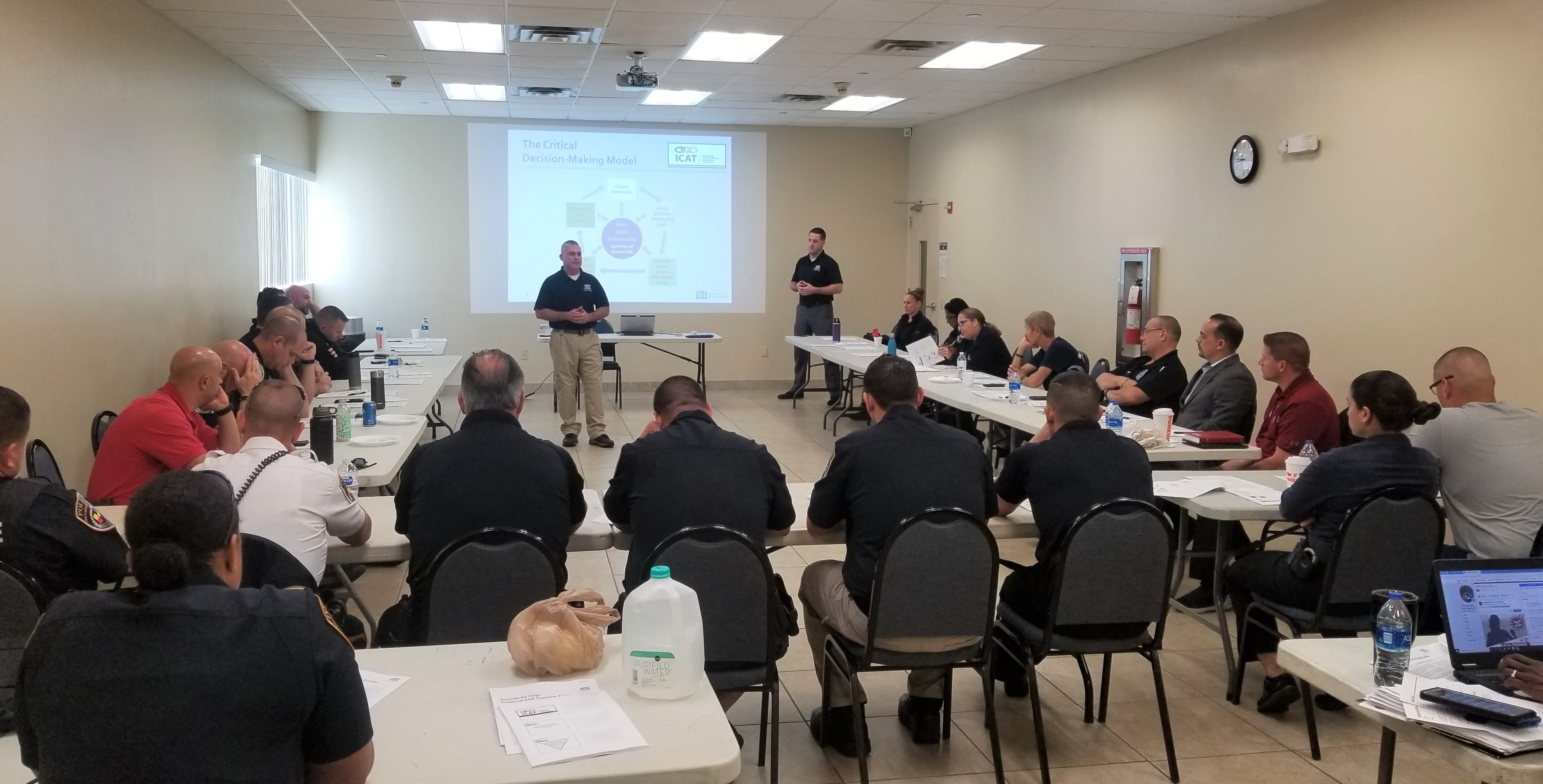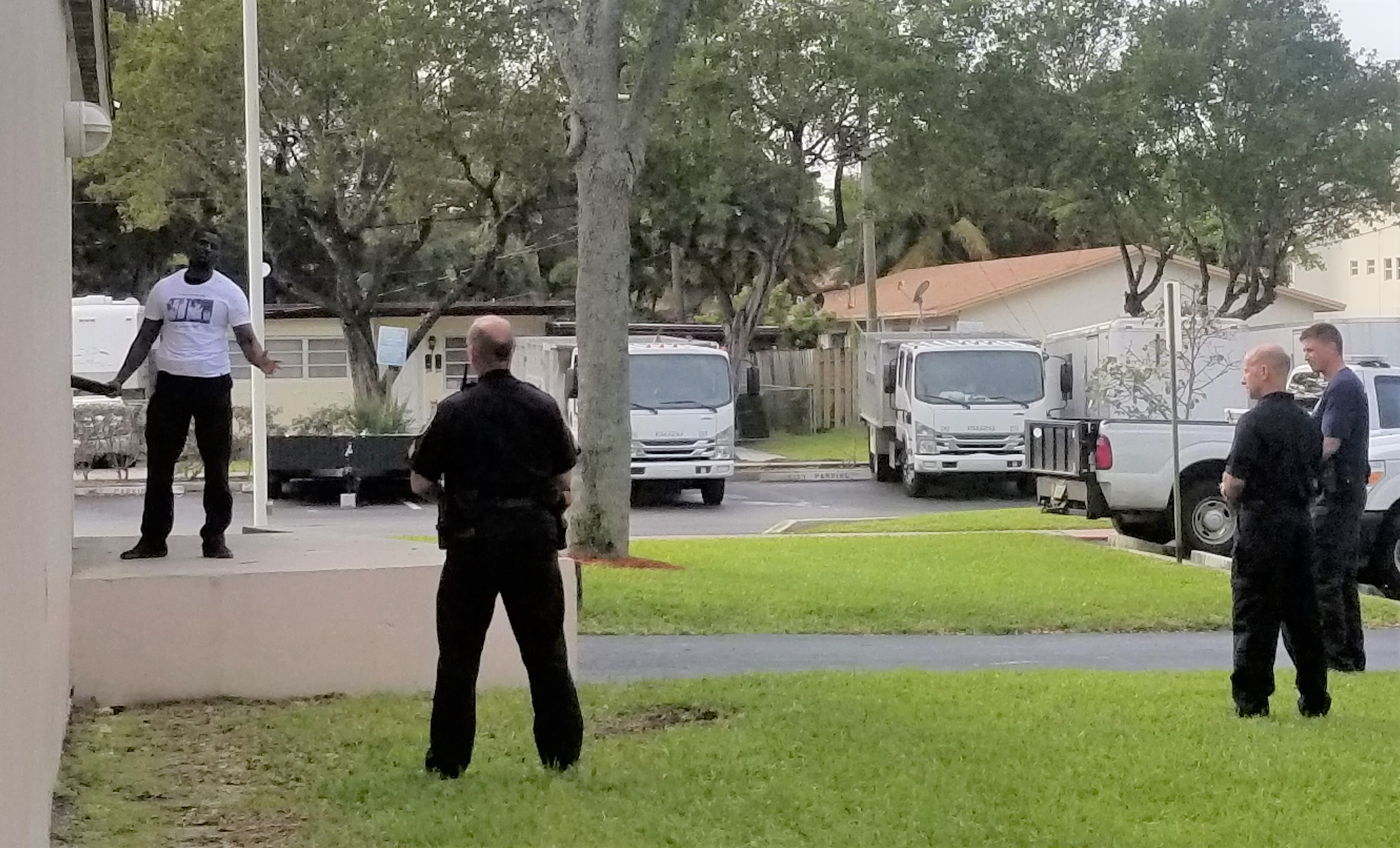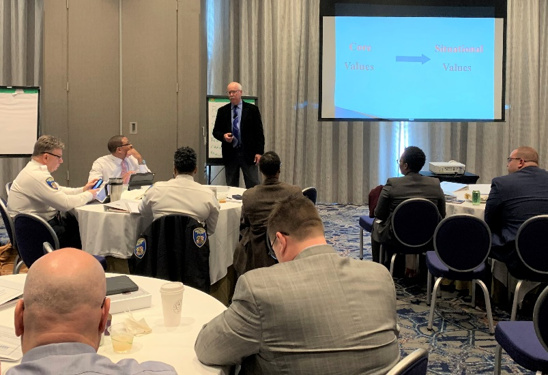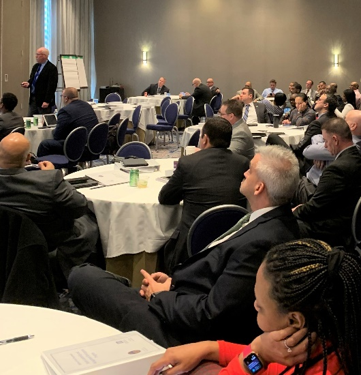|
Police chief turnover in Oakland, ICAT training in Hallandale Beach, FL, and emotional survival training in Baltimore
Dear PERF members,
Welcome to this week’s “PERF Trending.”
It’s Groundhog Day in Oakland, CA: Another day, another police chief in Oakland. You’ve probably heard that the Oakland Police Commission fired Police Chief Anne Kirkpatrick without cause. The mayor praised Anne for bringing down violent crime, reducing officer-involved shootings, and moving forward on racial issues – and then joined the commission to fire her.
Over the last decade, Oakland has had four police chiefs, plus four interim chiefs. The Police Department has been under court oversight for 17 years -- under four mayors, two federal judges, and two monitoring teams. I can’t think of another major city that has experienced this level of upheaval.
What makes Oakland such a difficult place to manage? Unlike any other city in the country, Oakland has been under a locally-generated consent decree (not one brought by the U.S. Justice Department), with a court-appointed monitor (a former police chief) in charge of overseeing the police department. Anne Kirkpatrick and her immediate predecessors had the responsibility, but not the authority, to make changes. Meanwhile, the monitor has the authority, but not the responsibility, for what happens. There is an inherent conflict that puts the police chief in a nearly impossible position to carry out the very changes that everyone agrees are needed.
The Oakland Police Department is a very different agency from what it was 17 years ago when the consent decree was enacted. Substantial progress has been made in implementing reforms, to the point that the department seemed to be in the final stages of complying with the consent decree. The latest change at the top will likely delay the achievement of that goal once again.
One also has to wonder who Oakland will be able to recruit to be its next police chief. Given the current convoluted oversight system, plus the history of instability and turmoil at the top of the department, finding a change-agent to keep the department moving forward (and getting out from under the consent decree) will not be easy.
Certainly, the situation does not seem to be benefiting the Oakland community. Its citizens deserve a chief who has the responsibility and the authority to make the necessary reforms, without having to face the second-guessing of so many different bosses.
Coronavirus threat: The top story is most newspapers these days is the coronavirus threat. PERF has conducted a great deal of research and has produced detailed guidelines on the role of police and sheriffs’ departments in supporting public health agencies during a pandemic. In 2007, with support from the Motorola Solutions Foundation, PERF released Police Planning for an Influenza Pandemic: Case Studies and Recommendations from the Field. PERF also worked with the federal Bureau of Justice Assistance on a series of reports about the role of police during public health emergencies, available here.
I strongly recommend that all police chiefs and other leaders study these reports. The coronavirus threat could impact many American cities within days or weeks. Two major points to consider: (1) If we have a coronavirus pandemic, police will have to take new roles, including executing public health orders and providing security at medical facilities and vaccine distribution sites; and (2) police agencies will experience sharp reductions in staffing, as officers become infected and must cease working in order to protect their own health and avoid infecting others. The scenarios are pretty scary.
Chapter 2: As you may remember, last year PERF produced a book called Chapter 2: How Police Chiefs and Sheriffs Are Finding Meaning and Purpose In the Next Stage of Their Careers. The book is based largely on advice we obtained from more than 100 retired police chiefs and sheriffs.
Unfortunately, I still get phone calls from police chiefs who have been fired, or who have retired while they’re still pretty young and found that retirement isn’t as fulfilling as they expected. And I ask them, “Have you read our Chapter 2 book?” And they say no, they never got around to reading it, or they aren’t aware of it.
So I want to give “Chapter 2” a plug, because it’s important that you read this book now, not later. If you wait until after you get fired or after you retire, it’s almost too late. The book will get you thinking about what you want to do after you leave your police agency, and how to make it happen. For example, maybe you think you’d like to teach a course on policing after you retire. The time to start exploring your plans is now, while you’re still in policing. Make the contacts at a local college and teach a night-school course as an adjunct professor. Chapter 2 is about figuring out what you really enjoy doing, and taking action to make it a reality.
PERF takes the midnight shift: PERF Senior Associate Dan Alioto had an unusual experience last week. Captain Terry Thouez of the Hallandale Beach, FL Police Department (a graduate of PERF’s SMIP program) had engaged PERF to provide ICAT training to Hallandale’s 100+ officers. Because of limited funding and manpower, scheduling the training was challenging. As a result, Dan and ICAT trainers ended up teaching two sessions during the overnight shifts, from 5 p.m. to 5 a.m.
“We were conducting ICAT scenarios outside in the dark, and at times in the rain, which gave it a more realistic feel,” Dan told us. “We enjoyed the change of pace, but we’re happy to happy to return to the ‘grind’ of daytime work at PERF HQ!”
 
Baltimore training on emotional survival for police: PERF Senior Research Associate Matt Harman recently organized a training session for the Baltimore Police Department’s command staff on the topic of “Emotional Survival for Law Enforcement.” The trainer was retired Flagstaff, AZ Deputy Chief Bob White, who talked about how a young officer’s initial enthusiasm for police work can be lost to cynicism because of the pressures and frustrations that often go with the work. This can affect officers’ performance, decision-making, and their personal and family life. The training presented strategies for officers to function effectively and ethically without burning out. The training was based on the work of Dr. Kevin Gilmartin, author of Emotional Survival for Law Enforcement.
 
Meeting at PERF HQ with DHS experts on biometrics: On Wednesday PERF staffers met with DHS officials to hear about how their Office of Biometric Identity Management (OBIM) can assist state and local law enforcement. They want all our members to know that their Biometric Support Center is a 24/7 resource for agencies that would like to run their biometric information, especially fingerprints, through DHS’s database. For more information about how to work with OBIM, contact Director Shonnie Lyon at [email protected]. Thanks to Director Lyon, Deputy Under Secretary Tex Alles, Federal Protective Service Director Leonard Eric Patterson, and Associate Deputy Under Secretary Troy Edgar for speaking with us about OBIM!

Enjoy your weekend, and we’ll catch up again next Saturday! PERF’s Weekend Clips are below.
Best,
Chuck Wexler
PERF Weekend Clips
How a survivor of domestic violence, now working as a cop in the bayou, made her small community a model for the rest of the country.
In the new CBS primetime show, Tommy, Edie Falco, from The Sopranos, plays Abigail Thomas, or "Tommy," the first female police chief, shattering the glass ceiling in the city of Los Angeles.
Phoenix Police Chief Jeri Williams can relate.
Three years ago, she became the first woman and first person of color to be chief of police for the fifth biggest city in America. She sat down with us to give her take on TV finally catching up with reality.
Houston Police Chief Art Acevedo has concerns about “Texas justice.” Chief Acevedo has made his frustrations known on social media lately, calling out national and state lawmakers, as well as judges.
He came on this week's episode of Inside Texas Politics to speak about the problems he sees with the current status of Texas' criminal justice system.
|